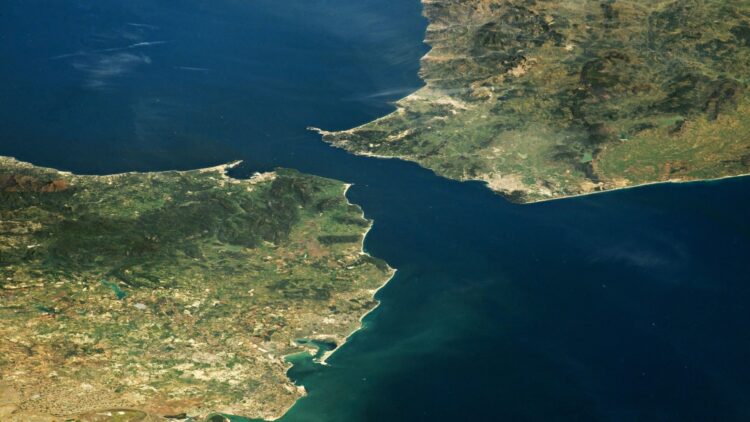Europe and Africa are planning something quite out of the ordinary. The two continents are planning to invent an ambitious project, that is, an underwater tunnel train that connects both continents. If you try to imagine it, it sounds like a very interesting project and stimulates curiosity. Apparently, this idea was initiated 1979. However, with the 2030 World Cup scheduled to take place in Portugal, Spain, and Morocco, the project has gained even more significance.
If implemented, this initiative would be one of the world’s greatest unique and innovative projects. Two continents joined together by an underwater train sounds like something to look forward to. With the help of this enormous infrastructure project, there will be a direct rail connection between Spain and Morocco beneath the Mediterranean Sea. However, despite how excellent this sounds, experts believe it is impossible.
The vision looks like this: Connecting two continents, Europe and Africa
This project idea is not new; it has been in the conversation box for decades. However, because of some technological advancement, the automotive industry believes that the idea can now be implemented. Building a tunnel under the Mediterranean Sea will permit passengers to easily travel between two continents, which will open doors for the tourism industry and boost the economies of both continents.
Envision being able to travel effectively and sustainably between Europe and Africa in less than six hours by rail, starting from Spain and ending in Morocco. Sounds crazy right? Well, in its craziness there could be a groundbreaking invention. A report by Puckett (2024) mentioned that with the rail tunnel, travelling from Spain to Morocco would be more efficient. One could board a train in Madrid and reach Casablanca in about five and a half hours.
While flights between the two cities take roughly two hours, travelling between them by automobile and boat currently takes more than twelve hours. If this megaproject comes to life it will have a 360 degree shift in how we perceive travel and transport. However, it would also offer a greener substitute for shipping and air travel. A high-speed rail connection might be a vital first step towards encouraging more environmentally friendly forms of transport.
Practical engineering feasibility: Can it be implemented?
At this point there is no direct answer as to whether this concept is feasible. Obviously building a tunnel like that is immense and requires a lot, from government support, resources, skilled labour and investments. First of all, the Mediterranean Sea is a major geographical barrier. The Strait of Gibraltar is just around 14 kilometres (9 miles) wide at its narrowest point, but the depth of the ocean and the moving tectonic plates make it one of the most difficult.
The pressure from the water can also hinder the success of this project. We certainly cannot guarantee that what happened at the Red Sea will possibly transpire at the Mediterranean Sea. We need to be realistic. Experts have voiced worries about the seabed’s stability and the possibility of earthquakes, which might make tunnel construction and maintenance dangerous. Moreover, the magnitude of the engineering needed is overwhelming.
High-level negotiations to revive the project have been ongoing for the past year between Morocco and Spain, whose transport ministers have met several times since April 2023. Spain set aside 2.3 million euros last year to begin its feasibility studies for the tunnel project. it is important to note that this size of tunnel construction could upset marine ecosystems and have unpredicted effects on the fragile balance of species and natural habitats in the Mediterranean.
While it is ideal for the train line to be operational by 2030, there is no timeframe for when the project may receive official approval or when the exploratory phase will conclude. However, with a supposed date for another strategic meeting between the two countries, the World Cup might provide enough motivation to kickstart work and ultimately complete the historic transport project.

